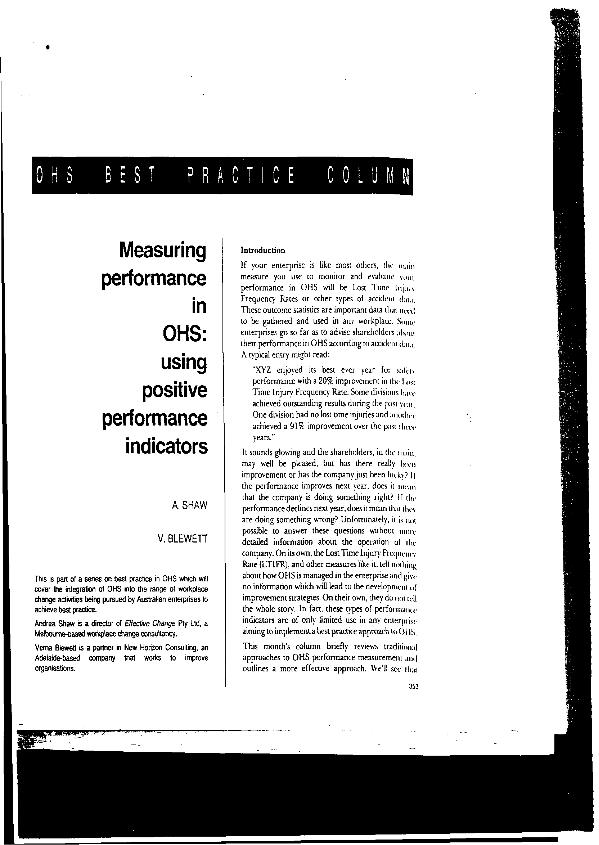Measuring performance in OHS : using positive performance indicators

Contenido multimedia no disponible por derechos de autor o por acceso restringido. Contacte con la institución para más información.
| Tag | 1 | 2 | Value |
|---|---|---|---|
| LDR | 00000nab a2200000 i 4500 | ||
| 001 | MAP20071030330 | ||
| 003 | MAP | ||
| 005 | 20080418122032.0 | ||
| 008 | 980609s1995 aus|||| | |00010|eng d | ||
| 040 | $aMAP$bspa | ||
| 084 | $a870 | ||
| 100 | 1 | $0MAPA20080002602$aShaw, A. | |
| 245 | 1 | 0 | $aMeasuring performance in OHS$b: using positive performance indicators$cA. Shaw, V. Blewett |
| 520 | $aIf your enterprise is like most others, the main measure you use to monitor and evaluate your performance in OHS (Occupational Health and Safety) will be Lost Time Injury Frequency Rates or other types of accident data. These outcome statistics are important data that need to be gathered and used in any workplace. Some interprises go so far as to advise shareholders about their performance in OHS according to accident data. This article review traditional approaches to OHS performance measurement and outlines a more effective approach. We see that there is both a need and a real opportunity to move away from accident data as a key performance measure | ||
| 650 | 1 | 1 | $0MAPA20080629724$aSeguridad e higiene en el trabajo |
| 650 | 1 | 1 | $0MAPA20080599744$aAccidentes de trabajo |
| 650 | 1 | 1 | $0MAPA20080619480$aEnfermedades profesionales |
| 650 | 1 | 1 | $0MAPA20080597030$aIndice de frecuencia |
| 650 | 1 | 1 | $0MAPA20080542214$aRatios |
| 700 | 1 | $0MAPA20080020620$aBlewett, V. | |
| 740 | 0 | $aJournal of occupational health and safety | |
| 773 | 0 | $tJournal of occupational health and safety$dNew Zeland$gnº 11, 1995 ; p. 353-358 |

